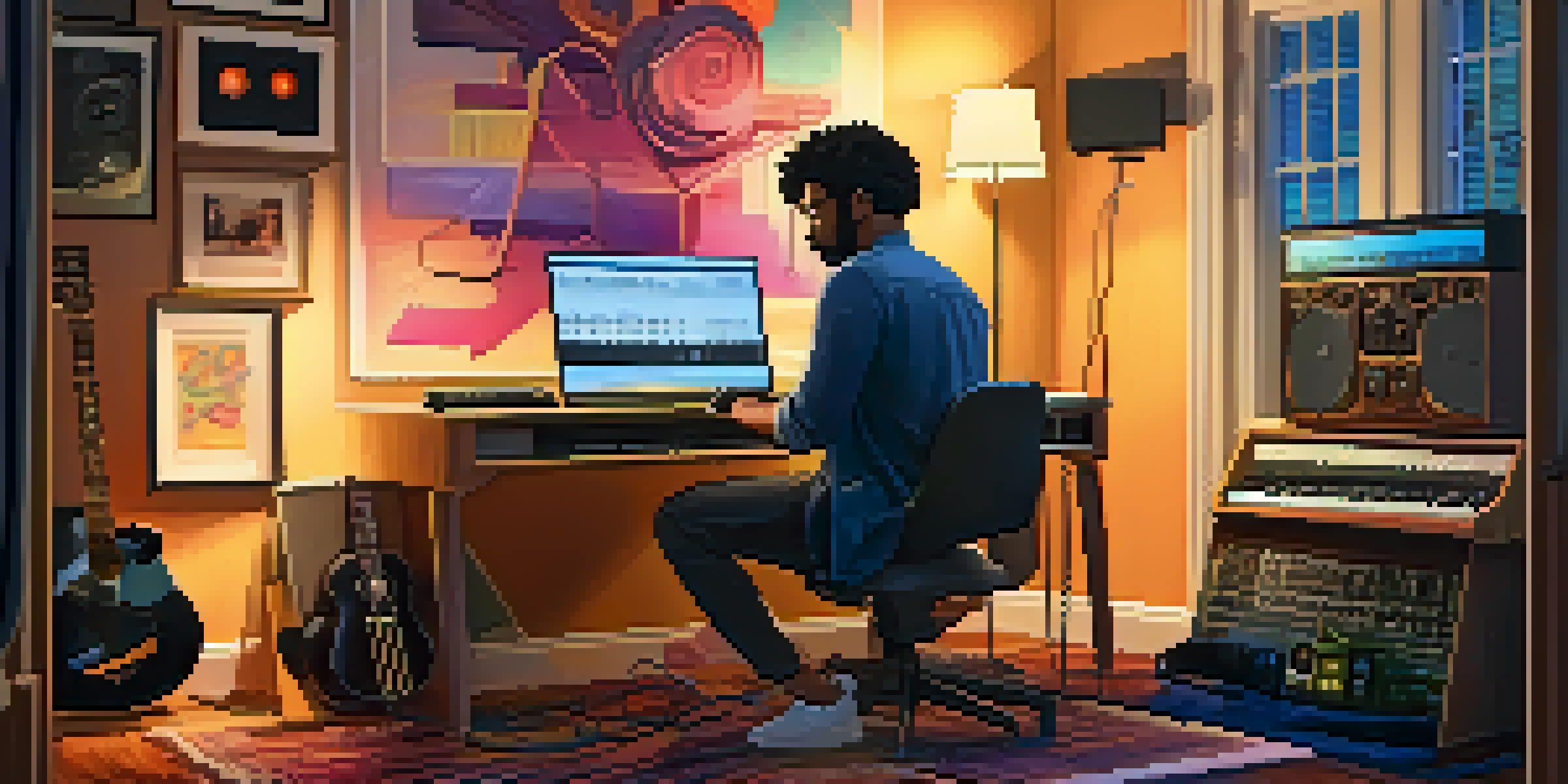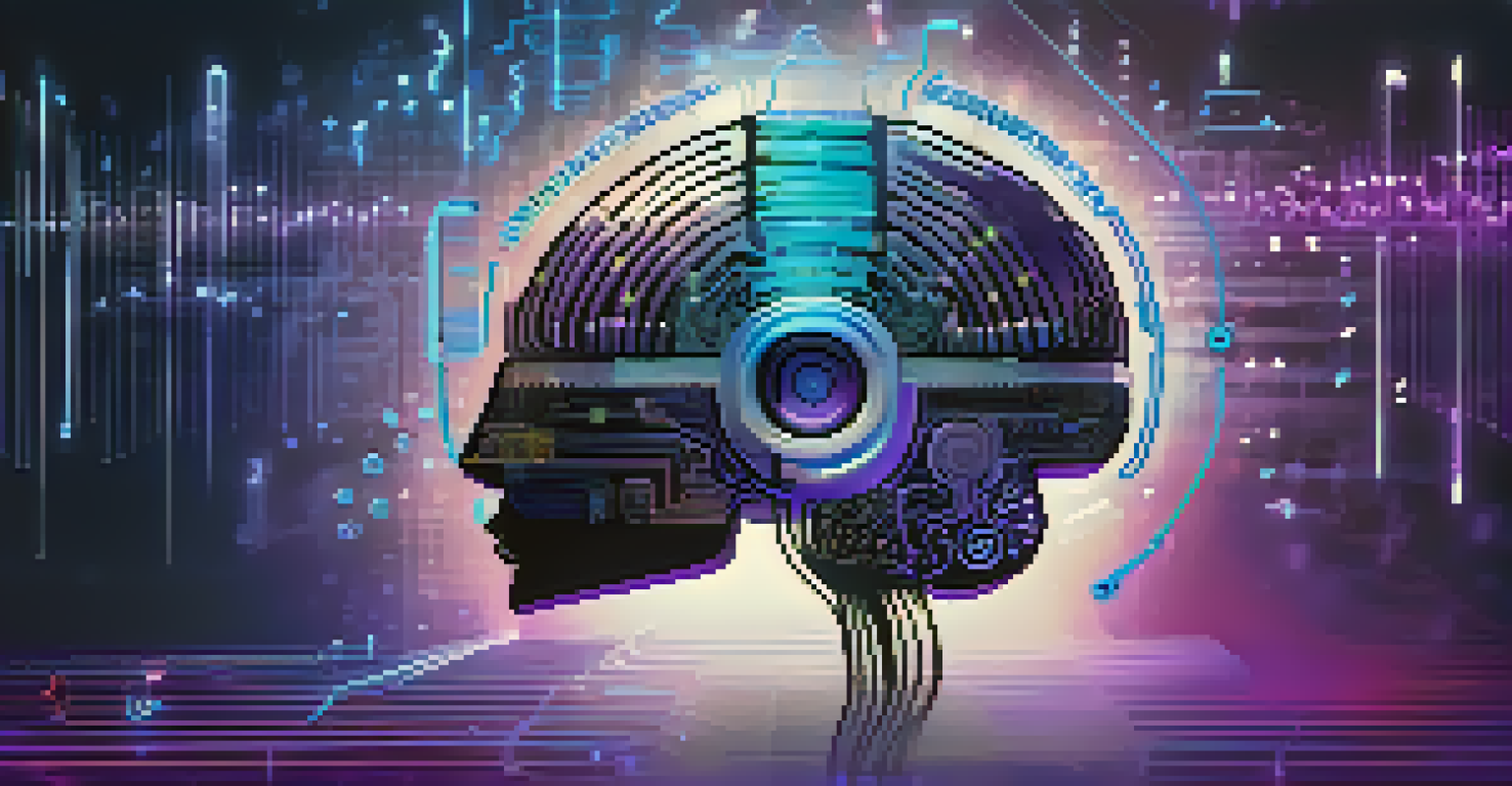How AI Tools Are Empowering Independent Musicians Today

The Rise of AI in the Music Industry
In recent years, artificial intelligence has made significant inroads into the music industry. Independent musicians are now harnessing AI tools to enhance their creativity and streamline their processes. This technological revolution allows artists to focus more on their craft while leveraging intelligent systems for various tasks.
Artificial intelligence is the new electricity.
From composing melodies to producing tracks, AI can assist musicians at every step. For instance, AI-driven software can analyze popular song structures and suggest changes, helping artists create more appealing music. This means that even those without a formal music education can produce professional-sounding tracks.
Moreover, as AI continues to evolve, it becomes more accessible to independent artists. With user-friendly platforms and affordable pricing, musicians can now utilize these advanced tools without breaking the bank, making it easier than ever to enter the music scene.
AI-Powered Music Composition Tools
One of the most exciting developments in AI technology is its ability to assist in music composition. Tools like OpenAI's MuseNet and AIVA can generate original melodies and harmonies based on prompts provided by the user. This allows independent musicians to experiment with different styles and ideas they might not have considered otherwise.

For example, a folk artist might use an AI tool to create a jazz-inspired backing track, opening up new avenues for creative expression. These tools not only inspire new ideas but also help alleviate writer's block, which can be a frustrating experience for many musicians.
AI Boosts Independent Musicians
Artists are utilizing AI tools to enhance creativity and streamline music production, making professional-quality music more accessible.
By integrating AI-generated components into their work, independent musicians can craft unique soundscapes that stand out in a crowded marketplace. The collaboration between human creativity and AI innovation can lead to groundbreaking music that captivates audiences.
Enhancing Music Production with AI
Once a song is written, the next step is production, and this is where AI tools shine. Software like LANDR and iZotope can analyze tracks and provide recommendations for mixing and mastering, ensuring that songs sound polished and professional. This capability is especially beneficial for independent musicians who may not have access to high-end studios.
Technology is best when it brings people together.
AI can also assist in automating repetitive tasks, such as adjusting levels or applying effects, which frees up time for artists to focus on more creative aspects of their music. Additionally, these tools often come with intuitive interfaces that make them easy to use, even for those who are not tech-savvy.
Ultimately, AI in music production helps level the playing field. Independent musicians can achieve high-quality results that rival those produced by major studios, giving them a better chance to compete in the industry.
Marketing Music with AI Insights
Once the music is ready, getting it heard is the next challenge. AI tools can significantly enhance marketing efforts by analyzing listener data and trends. Platforms like Spotify and Apple Music utilize algorithms that help artists understand their audience better, allowing for targeted promotions.
For example, AI can identify which demographics are most engaged with a song, helping musicians tailor their marketing strategies accordingly. This targeted approach can result in more effective campaigns, ensuring that independent artists reach the right listeners.
AI Enhances Music Marketing Strategies
AI-driven analytics help musicians understand audience engagement and optimize marketing campaigns for better reach.
Moreover, some AI-driven marketing platforms can even automate social media posts or create ad campaigns based on the artist's music style and audience preferences. This not only saves time but also maximizes the impact of their promotional efforts.
AI and Fan Engagement Strategies
Engaging with fans is crucial for any independent musician, and AI tools are stepping in to enhance this relationship. Chatbots powered by AI can interact with fans on social media, answering questions and providing updates on new releases or concerts. This instant interaction fosters a sense of community around the artist.
Additionally, AI can analyze fan comments and feedback to help musicians understand what their audience likes or dislikes. This valuable insight allows artists to tailor their music and branding to better meet the expectations of their listeners.
By leveraging AI for fan engagement, independent musicians can build stronger connections with their audiences, leading to increased loyalty and support. A dedicated fan base can make all the difference in an artist's career.
The Role of AI in Music Distribution
Distributing music has traditionally been one of the biggest hurdles for independent musicians. However, AI is changing that landscape by providing tools that simplify the distribution process. Services like DistroKid and TuneCore utilize AI algorithms to distribute music across various streaming platforms quickly and efficiently.
These platforms not only ensure that music reaches a broad audience but also provide analytics to track performance. This data is invaluable for independent artists looking to understand where their music resonates most.
AI Simplifies Music Distribution
AI algorithms streamline the distribution process, allowing independent artists to quickly share their music across various platforms.
Furthermore, AI can help optimize release strategies by analyzing trends and suggesting the best times to launch new tracks. This strategic approach to distribution can significantly enhance an artist's visibility in a competitive market.
The Future of AI and Independent Music
As technology continues to advance, the potential for AI in the music industry is limitless. Independent musicians are at the forefront of this revolution, using AI tools to break barriers and redefine their creative processes. The future promises even more sophisticated tools that will further empower artists.
With ongoing developments, we can expect AI to play an even larger role in shaping music trends and assisting artists in their journeys. This evolution will likely lead to more diverse sounds and innovative approaches to music-making.

Ultimately, the relationship between AI and independent musicians is a partnership that fosters creativity and democratizes the music industry. As artists embrace these tools, they are not just surviving but thriving in an ever-changing landscape.